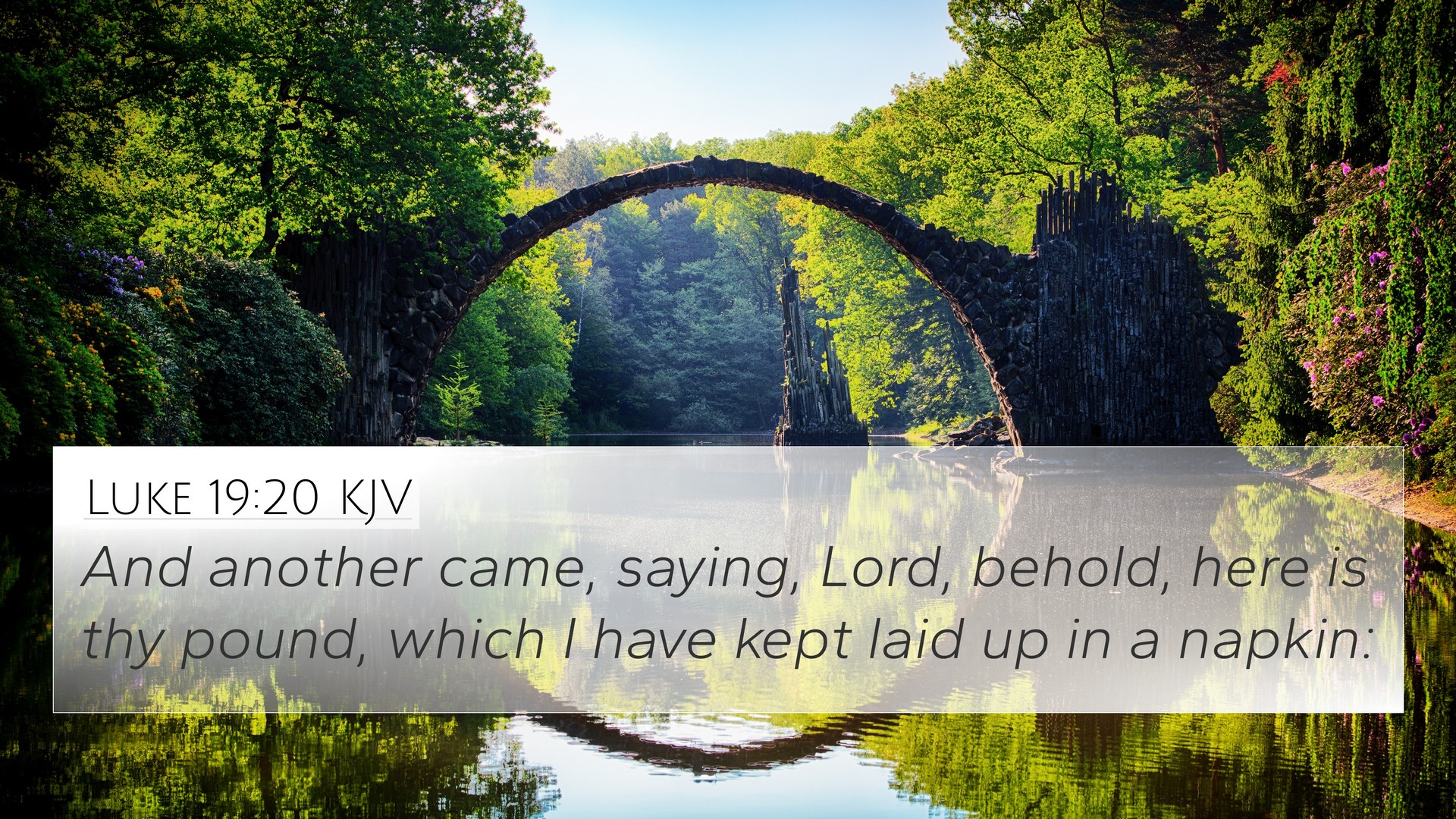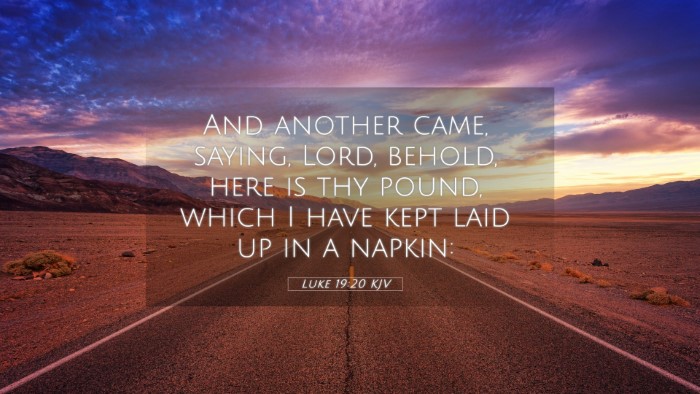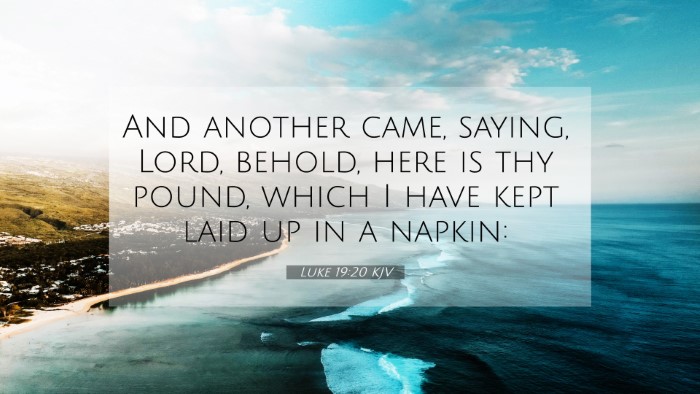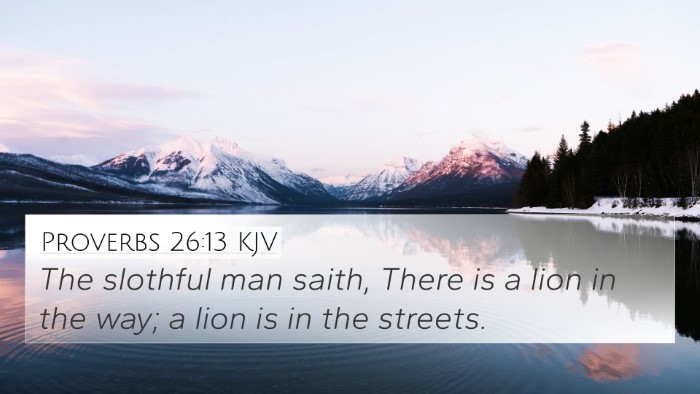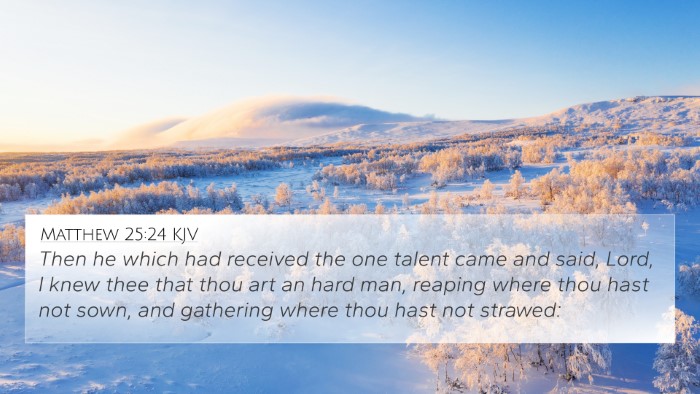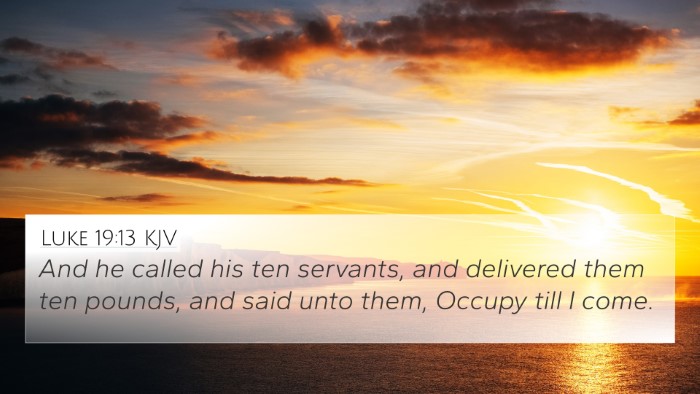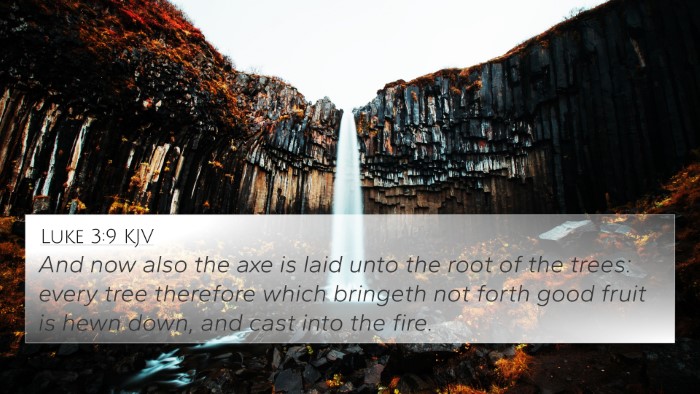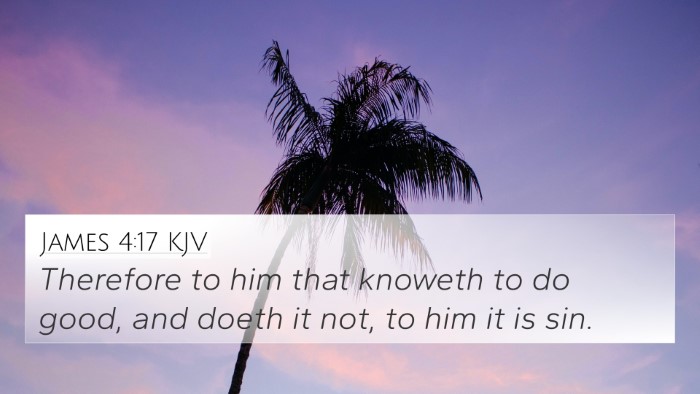Understanding Luke 19:20
Luke 19:20 states: "And another came, saying, Lord, behold, here is thy pound, which I have kept laid up in a napkin." This verse is part of the Parable of the Pounds, conveyed by Jesus to illustrate the nature of stewardship and accountability.
Summary of Meaning
The essence of this verse reflects the failure of the servant to invest the master's resources wisely. Instead of utilizing the pound, he hid it, exhibiting fear and a lack of initiative.
Insights from Public Domain Commentaries
-
Matthew Henry:
Henry emphasizes that this servant represents those who do not take opportunities to serve God and grow in faith. The napkin symbolizes cowardice, hiding the gifts given to them rather than engaging in productive service.
-
Albert Barnes:
Barnes points out the contrast between active and passive stewardship. This servant's approach signifies a lack of faith in the master; he does not believe that he could safely manage his resources for a greater return.
-
Adam Clarke:
Clarke remarks on the implications of this servant's actions. By failing to invest wisely, he reflects a poor understanding of the master's expectations. The napkin represents a barrier to productivity and relationship with the master.
Cross-References to Luke 19:20
Understanding Luke 19:20 is enriched through related Scripture. Below are cross-references that illustrate similar themes:
- Matthew 25:25-30: The Parable of the Talents emphasizes accountability and the consequences of inactivity.
- Luke 12:48: "To whom much is given, much will be required," stressing the responsibility that comes with blessings.
- 2 Corinthians 5:10: Indicates that we must all appear before Christ to give an account for what we have done.
- Proverbs 10:4: "Lazy hands make a man poor, but diligent hands bring wealth," contrasting diligence with laziness.
- James 2:17: Faith without works is dead, aligning with the action required in stewardship.
- Ecclesiastes 11:6: Encourages active engagement—"In the morning sow your seed, and in the evening, do not withhold your hand."
- Luke 8:18: Speaks to the importance of heeding what one hears and utilizing it effectively.
Lessons from the Parable
This parable teaches profound truths about:
- Responsible Stewardship: All believers are entrusted with gifts and callings.
- Active Faith: Faith demands action; hiding one's talents is not in line with God’s expectations.
- Judgment: A day will come when we must give an account for our lives and how we used what was entrusted to us.
Conclusion
In examining Luke 19:20, we are reminded of the importance of utilizing the resources God has given us for His glory. With supporting insights from public domain commentaries and relevant cross-references, we see a clear picture of faithful stewardship, responsibility, and the active nature of our faith.
Exploring Cross-Referencing
For those interested in a cross-reference Bible study, tools like a Bible concordance or guides will assist in connecting related verses effectively. Understanding the context of these themes is essential in interpreting the Bible as a cohesive narrative. Explore how these verses interact and support each other, creating a deeper understanding of God's expectations.
Further Study Recommendations
If you desire to dive deeper into connections between Bible verses like Luke 19:20, consider:
- Using a Bible cross-reference guide to follow thematic trails.
- Engaging with comparative Bible verse analysis, focusing on parallels between the Gospels.
- Exploring how Old Testament principles apply to New Testament teachings and vice versa.
